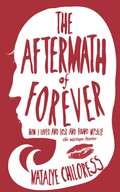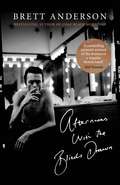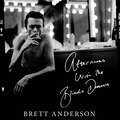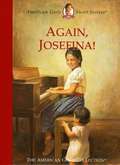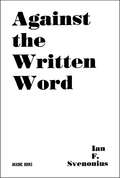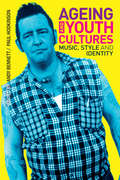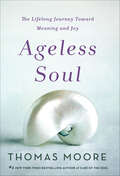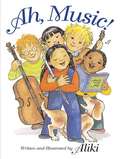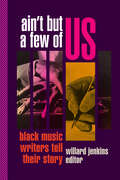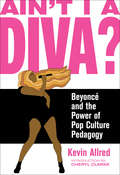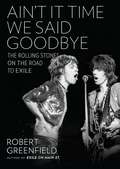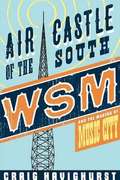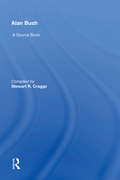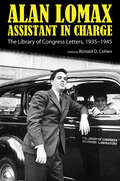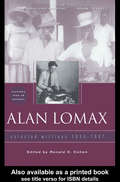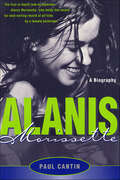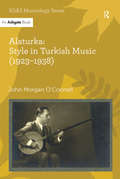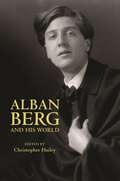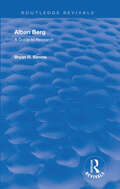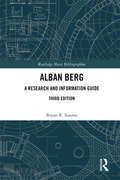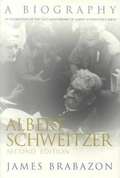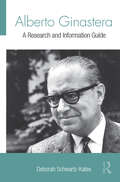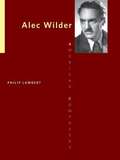- Table View
- List View
Aftermath of Forever: How I Loved and Lost and Found Myself. The Mix Tape Diaries (Punx Ser.)
by Natalye ChildressThe Aftermath of Forever: How I Loved and Lost and Found Myself is a memoir that chronicles the romantic coming-of-age of a woman in her 20s experiencing dating in the San Francisco Bay Area. After the disappointment of a failed marriage, Natalye Childress embarks on a soul-searching journey to discover what happens when the one you thought you would be with forever breaks your heart. Using music as a vehicle to express herself, she revisits ten men from her past and paints a portrait of their relationships through the mixtapes she has made them. Her quest for love takes the form of delving into the hedonistic world of noncommittal beaus, abusive boyfriends, and friends with benefits. She candidly dissects her love life on the page as she shares the inspiring and hopeful moments alongside the awkward and painful realizations that accompany dating in the present day, when everyone is looking for something different. These men, although they leave her life almost as quickly as they entered it, collectively help shape her future as she embarks on a quest not only to find love, but to find herself. Ultimately, she learns the age-old lesson that in order to truly be loved, she needs to first love herself.
Afternoons with the Blinds Drawn
by Brett Anderson'A compelling personal account of the dramas of a singular British band' Neil TennantThe trajectory of Suede - hailed in infancy as both 'The Best New Band in Britain' and 'effete southern wankers' - is recalled with moving candour by its frontman Brett Anderson, whose vivid memoir swings seamlessly between the tender, witty, turbulent, euphoric and bittersweet. Suede began by treading the familiar jobbing route of London's emerging new 1990s indie bands - gigs at ULU, the Camden Powerhaus and the Old Trout in Windsor - and the dispiriting experience of playing a set to an audience of one. But in these halcyon days, their potential was undeniable. Anderson's creative partnership with guitarist Bernard Butler exposed a unique and brilliant hybrid of lyric and sound; together they were a luminescent team - burning brightly and creating some of the era's most revered songs and albums.In Afternoons with the Blinds drawn, Anderson unflinchingly explores his relationship with addiction, heartfelt in the regret that early musical bonds were severed, and clear-eyed on his youthful persona. 'As a young man . . . I oscillated between morbid self-reflection and vainglorious narcissism' he writes. His honesty, sharply self-aware and articulate, makes this a compelling autobiography, and a brilliant insight into one of the most significant bands of the last quarter century.
Afternoons with the Blinds Drawn
by Brett Anderson'A compelling personal account of the dramas of a singular British band' Neil TennantThe trajectory of Suede - hailed in infancy as both 'The Best New Band in Britain' and 'effete southern wankers' - is recalled with moving candour by its frontman Brett Anderson, whose vivid memoir swings seamlessly between the tender, witty, turbulent, euphoric and bittersweet. Suede began by treading the familiar jobbing route of London's emerging new 1990s indie bands - gigs at ULU, the Camden Powerhaus and the Old Trout in Windsor - and the dispiriting experience of playing a set to an audience of one. But in these halcyon days, their potential was undeniable. Anderson's creative partnership with guitarist Bernard Butler exposed a unique and brilliant hybrid of lyric and sound; together they were a luminescent team - burning brightly and creating some of the era's most revered songs and albums.In Afternoons with the Blinds drawn, Anderson unflinchingly explores his relationship with addiction, heartfelt in the regret that early musical bonds were severed, and clear-eyed on his youthful persona. 'As a young man . . . I oscillated between morbid self-reflection and vainglorious narcissism' he writes. His honesty, sharply self-aware and articulate, makes this a compelling autobiography, and a brilliant insight into one of the most significant bands of the last quarter century.
Afternoons with the Blinds Drawn
by Brett Anderson'A compelling personal account of the dramas of a singular British band' Neil TennantThe trajectory of Suede - hailed in infancy as both 'The Best New Band in Britain' and 'effete southern wankers' - is recalled with moving candour by its frontman Brett Anderson, whose vivid memoir swings seamlessly between the tender, witty, turbulent, euphoric and bittersweet. Suede began by treading the familiar jobbing route of London's emerging new 1990s indie bands - gigs at ULU, the Powerhaus and the Old Trout in Windsor - and the dispiriting experience of playing a set to an audience of one. But in these halcyon days, their potential was undeniable. Anderson's creative partnership with guitarist Bernard Butler exposed a unique and brilliant hybrid of lyric and sound; together they were a luminescent team - burning brightly and creating some of the era's most revered songs and albums.In Afternoons with the Blinds drawn, Anderson unflinchingly explores his relationship with addiction, heartfelt in the regret that early musical bonds were severed, and clear-eyed on his youthful persona. 'As a young man . . . I oscillated between morbid self-reflection and vainglorious narcissism' he writes. His honesty, sharply self-aware and articulate, makes this a compelling autobiography, and a brilliant insight into one of the most significant bands of the last quarter century.
Again Josefina (American Girls Short Stories #8)
by Valerie TrippAny child who has taken piano lessons will get a kick out of this book. Josefina finds unique ways to "practice," and even baby Antonio gets into the act of encouraging her to practice more. Humor, warmth, and lots of repetition lead Josefina to become a player of songs. Other books about Josefina are also available from Bookshare. In order for this file to make an excellent embossed braille copy, attention must be paid to the words written in Spanish.
Against the Written Word: Toward A Universal Illiteracy
by Ian F. SvenoniusIf the Gutenberg Bible is the alpha, Against the Written Word is the OMEGA. Against the Written Word is the most important, most revolutionary book produced since the advent of the printing press; the book that will liberate readers from reading, writers from writing, and booksellers from peddling their despicable wares. This book ushers in a new era of freedom from reading and all its attendant bedfellows such as Enlightenment thinking and the mass alienation wrought by the phonetic alphabet. Against the Written Word will be a tremendous best seller and simultaneously the last book that anyone will read. With nineteen essays ripping, shredding, tearing apart all the bugaboos that haunt humanity nowadays, Against the Written Word is a must-read for any aspiring radical or would-be gnostic who has a penchant for words, thought, clothes, intoxicants, music, art, expression, etc. The work is presented in a range of writing: essays, screenplays, lectures, sci-fi stories, and manifestos, with topics that include “the rise of incorporated man,” “tourism as the neoliberal mode of military occupation,” a workshop on songwriting for the purpose of suggestion and mind control, and many more. This handsome, illustrated book will correct the paucity of thought that characterizes the modern bookstore, and will practically sell itself. It will call out from the shelf to ingratiate itself to the unsuspecting everyday book browser, who will be hooked and then hungrily consume it. Infected with a wild-eyed evangelism, they will then proliferate it amongst their friends and acquaintances. These new readers will disseminate it, and so on; soon this slim, innocuous volume will define an epoch and steer thought from here on out. The bookseller will be surprised and pleased to find that it will be the only book they need to stock. Against the Written Word will be dominant in a manner the market has not seen since the Bible tore up best-seller lists in the Middle Ages or Mao’s Little Red Book wowed the critics in Red China.
Ageing and Youth Cultures: Music, Style and Identity
by Paul Hodkinson Andy BennettWhat happens to punks, clubbers, goths, riot grrls, soulies, break-dancers and queer scene participants as they become older? For decades, research on spectacular 'youth cultures' has understood such groups as adolescent phenomena and assumed that involvement ceases with the onset of adulthood. In an age of increasingly complex life trajectories, Ageing and Youth Cultures is the first anthology to challenge such thinking by examining the lives of those who continue to participate into adulthood and middle-age. Showcasing a range of original research case studies from across the globe, the chapters explore how participants reconcile their continuing involvement with ageing bodies, older identities and adult responsibilities. Breaking new ground and establishing a new field of study, the book will be essential reading for students and scholars researching or studying questions of youth, fashion, popular music and identity across a wide range of disciplines.
Ageless Soul: The Lifelong Journey Toward Meaning and Joy
by Thomas MooreAgeless Soul will teach readers how to embrace the richness of experience and how to take life on, accept invitations to new vitality, and feel fulfilled as they get older.Thomas Moore is the renowned author of Care of the Soul, the classic #1 New York Times bestseller. In Ageless Soul, Moore reveals a fresh, optimistic, and rewarding path toward aging, one that need not be feared, but rather embraced and cherished. In Moore’s view, aging is the process by which one becomes a more distinctive, complex, fulfilled, loving, and connected person. Using examples from his practice as a psychotherapist and teacher who lectures widely on the soul of medicine and spirituality, Moore argues for a new vision of aging: as a dramatic series of initiations, rather than a diminishing experience, one that each of us has the tools—experience, maturity, fulfillment—to live out. Subjects include:*Why melancholy is a natural part of aging, and how to accept it, rather than confuse it with depression *The vital role of the elder and mentor in the lives of younger people*The many paths of spiritual growth and learning that open later in life*Sex and sensuality *Building new communities and leaving a legacy
Aging and Popular Music in Europe (Routledge Studies in Popular Music)
by Abigail Gardner Ros JenningsOpening up the dialogue between popular music studies and aging studies, this book offers a major exploration of age and popular music across Europe. Using a variety of methods to illustrate how age within popular music is contingent and compelling, the volume explores how it provokes curation and devotion across a variety of sites and artists who record in several European languages, and genres including waltz music, electronica, pop, folk, rap, and the French ‘chanson.’ Visiting the many ways in which age is problematized, revered, and performed within Europe in relation to popular music, case studies analyze: French touring shows of popular music stars from the 1960s; André Rieu’s annual Vrijthof concerts in the Netherlands; Kraftwerk and Björk’s appearances at renowned art museums as curated objects; queer approaches to popular music space and time; British folk music inheritances; pan-European strategies of stardom and career longevity; and inheritance and post-colonial hauntings of race and identity. The book works with the notion of travelling, across borders, genres, sexualities, and media, highlighting the visibility of the aging body across a variety of European sites in order to establish popular music through the lens of age as a positive methodology with which to approach popular music cultures, and to offer a counter-narrative to age as decline. This book will appeal to scholars of popular music, popular culture, media studies, cultural studies, aging studies, and cultural gerontology.
Ah, Music!
by Aliki<P>Surveys the history and components of music, concentrating on Western musical traditions. <P>[This text is listed as an example that meets Common Core Standards in English language arts in grades 2-3 at http://www.corestandards.org.]
Ain't But a Few of Us: Black Music Writers Tell Their Story
by Willard JenkinsDespite the fact that most of jazz’s major innovators and performers have been African American, the overwhelming majority of jazz journalists, critics, and authors have been and continue to be white men. No major mainstream jazz publication has ever had a black editor or publisher. Ain’t But a Few of Us presents over two dozen candid dialogues with black jazz critics and journalists ranging from Greg Tate, Farah Jasmine Griffin, and Robin D. G. Kelley to Tammy Kernodle, Ron Welburn, and John Murph. They discuss the obstacles to access for black jazz journalists, outline how they contend with the world of jazz writing dominated by white men, and point out that these racial disparities are not confined to jazz but hamper their efforts at writing about other music genres as well. Ain’t But a Few of Us also includes an anthology section, which reprints classic essays and articles from black writers and musicians such as LeRoi Jones, Archie Shepp, A. B. Spellman, and Herbie Nichols.ContributorsEric Arnold, Bridget Arnwine, Angelika Beener, Playthell Benjamin, Herb Boyd, Bill Brower, Jo Ann Cheatham, Karen Chilton, Janine Coveney, Marc Crawford, Stanley Crouch, Anthony Dean-Harris, Jordannah Elizabeth, Lofton Emenari III, Bill Francis, Barbara Gardner, Farah Jasmine Griffin, Jim Harrison, Eugene Holley Jr., Haybert Houston, Robin James, Willard Jenkins, Martin Johnson, LeRoi Jones, Robin D. G. Kelley, Tammy Kernodle, Steve Monroe, Rahsaan Clark Morris, John Murph, Herbie Nichols, Don Palmer, Bill Quinn, Guthrie P. Ramsey Jr., Ron Scott, Gene Seymour, Archie Shepp, Wayne Shorter, A. B. Spellman, Rex Stewart, Greg Tate, Billy Taylor, Greg Thomas, Robin Washington, Ron Welburn, Hollie West, K. Leander Williams, Ron Wynn
Ain't I a Diva?: Beyoncé and the Power of Pop Culture Pedagogy
by Kevin Allred&“[Allred] interrogates Beyoncé&’s music and videos to explore the complicated spaces where racism, sexism, and capitalism collide.&” —Kirkus Reviews In 2010, Professor Kevin Allred created the university course &“Politicizing Beyoncé&” to both wide acclaim and controversy. He outlines his pedagogical philosophy in Ain&’t I a Diva?, exploring what it means to build a syllabus around a celebrity. Topics range from a capitalist critique of &“Run the World (Girls)&” to the politics of self-care found in &“Flawless&”; Beyoncé&’s art is read alongside black feminist thinkers including Kimberlé Crenshaw, Octavia Butler, and Sojourner Truth. Combining analysis with classroom anecdotes, Allred attests that pop culture is so much more than a guilty pleasure, it&’s an access point—for education, entertainment, critical inquiry, and politics.&“Proving himself a worthy member of the BeyHive, Kevin Allred takes us on a journey through Beyoncé&’s greatest hits and expansive career—peeling back their multiple layers to explore gender, race, sexuality, and power in today&’s modern world. A fun, engaging, and important read for long-time Beyoncé fans and newcomers alike.&” —Franchesca Ramsey, author of Well, That Escalated Quickly&“Ain&’t I a Diva? explores the phenomenon of Beyoncé while explicitly championing not only her immense talent and grace but what we can learn from it. In this celebration of Beyoncé, and through her, other Black women, Allred is giving us room to be exactly who we are so that maybe we, too, can stop the world then carry on!&” —Keah Brown, author of The Pretty One&“A must-read for any fan of Beyoncé and of fascinating feminist discourse.&” —Zeba Blay, senior culture writer, HuffPost
Ain't It Time We Said Goodbye: The Rolling Stones on the Road to Exile
by Robert GreenfieldFor ten days in March 1971, the Rolling Stones traveled by train and bus to play two shows a night in many of the small theaters and town halls where their careers began. No backstage passes. No security. No sound checks or rehearsals. And only one journalist allowed. That journalist now delivers a full-length account of this landmark event, which marked the end of the first chapter of the Stones’ extraordinary career. Ain’t It Time We Said Goodbye is also the story of two artists on the precipice of mega stardom, power, and destruction. For Mick and Keith, and all those who traveled with them, the farewell tour of England was the end of the innocence. Based on Robert Greenfield’s first-hand account and new interviews with many of the key players, this is a vibrant, thrilling look at the way it once was for the Rolling Stones and their fans#151;and the way it would never be again.
Air Castle of the South: WSM and the Making of Music City
by Craig HavighurstStarted by the National Life and Accident Insurance Company in 1925, WSM became one of the most influential and exceptional radio stations in the history of broadcasting and country music. WSM gave Nashville the moniker "Music City USA" as well as a rich tradition of music, news, and broad-based entertainment. With the rise of country music broadcasting and recording between the 1920s and '50s, WSM, Nashville, and country music became inseparable, stemming from WSM's launch of the Grand Ole Opry, popular daily shows like Noontime Neighbors, and early morning artist-driven shows such as Hank Williams on Mother's Best Flour. Sparked by public outcry following a proposal to pull country music and the Opry from WSM-AM in 2002, Craig Havighurst scoured new and existing sources to document the station's profound effect on the character and self-image of Nashville. Introducing the reader to colorful artists and businessmen from the station's history, including Owen Bradley, Minnie Pearl, Jim Denny, Edwin Craig, and Dinah Shore, the volume invites the reader to reflect on the status of Nashville, radio, and country music in American culture.
Alan Bush: A Source Book
by Stewart R. CraggsBorn in 1900, Alan Bush, the English composer, conductor and pianist, studied with Corder and Matthay, and privately with John Ireland. He was appointed professor of harmony and composition at the Royal Academy of Music in 1925, a post he held until 1978. In 1929-31, he continued to study at Berlin University and had piano lessons with Moiseiwitsch and Schnabel. The present Source Book documents his works (many of which reflect his Communist sympathies) and the many arrangements of music by other composers. A wealth of detail is provided, including printed scores, CD recordings, bibliographical material and manuscript scores and their locations, the majority of which have been deposited recently in the British Library by the Bush family. A chronology of the composer's life draws on many sources including letters and scrapbooks.
Alan Lomax, Assistant in Charge: The Library of Congress Letters, 1935-1945 (American Made Music Series)
by Ronald D. CohenAlan Lomax (1915-2002) began working for the Archive of American Folk Song at the Library of Congress in 1936, first as a special and temporary assistant, then as the permanent Assistant in Charge, starting in June 1937, until he left in late 1942. He recorded such important musicians as Woody Guthrie, Muddy Waters, Aunt Molly Jackson, and Jelly Roll Morton. A reading and examination of his letters from 1935 to 1945 reveal someone who led an extremely complex, fascinating, and creative life, mostly as a public employee.While Lomax is noted for his field recordings, these collected letters, many signed "Alan Lomax, Assistant in Charge," are a trove of information until now available only at the Library of Congress. They make it clear that Lomax was very interested in the commercial hillbilly, race, and even popular recordings of the 1920s and after. These letters serve as a way of understanding Lomax's public and private life during some of his most productive and significant years. Lomax was one of the most stimulating and influential cultural workers of the twentieth century. Here he speaks for himself through his voluminous correspondence.
Alan Lomax: Selected Writings, 1934-1997 (American Made Music Ser.)
by Ronald D. CohenAlan Lomax is a legendary figure in American folk music circles. Although he published many books, hundreds of recordings and dozens of films, his contributions to popular and academic journals have never been collected. This collection of writings, introduced by Lomax's daughter Anna, reintroduces these essential writings. Drawing on the Lomax Archives in New York, this book brings together articles from the 30s onwards. It is divided into four sections, each capturing a distinct period in the development of Lomax's life and career: the original years as a collector and promoter; the period from 1950-58 when Lomax was recording thorughout Europe; the folk music revival years; and finally his work in academia.
Alanis Morissette: A Biography
by Paul CantinJust two years ago Alanis Morissette was a former teen pop star, dismissed by some as a footnote in Canadian pop history. Then her album Jagged Little Pill sold over 13 million copies worldwide, and a new queen of alternative rock was crowned.Here Paul Cantin tells the tale of how Morissette transformed herself from failed teenage star into an artist whose work speaks to an entire generation. With multiple Grammys and MTV Awards under her belt; this singer/songwriter has achieved what none thought possible. This is the story of that rare second chance.Included in this book are: Morissette's own account of her songwriting inspiration, exclusive interview material, a front-row account of the 1996 Grammy Awards, and never before-seen photos. This is the one book no Morrisette fan will want to be without.
Alaturka: Style in Turkish Music (SOAS Studies in Music Series)
by John Morgan O'ConnellThe early-Republican era (1923-1938) was a major period of musical and cultural change in Turkey. Alaturka: Style in Turkish Music is a study of the significance of style in Turkish music and, in particular, the polemical debate about an eastern style of Turkish music (called, alaturka) that developed during this rich and complicated era of Turkish history. Representing more than twenty years of research, the book explores the stylistic categories that show the intersection between music and culture; the different chapters treat musical materials, musical practices and musical contexts in turn. Informed by critical approaches to musical aesthetics in ethnomusicology as well as musicology and anthropology, the book focuses upon a native discourse about musical style, highlighting a contemporary apprehension about the appropriate constitution of a national identity. The argument over style discloses competing conceptions of Turkish space and time where definitions of the east and the west, and interpretations of the past and the present respectively were hotly contested. John Morgan O'Connell makes a significant contribution to the study of Turkish music in particular and Turkish history in general. Conceived as a historical ethnography, the book brings together archival sources and ethnographic materials to provide a critical revision of Turkish historiography, music providing a locus for interrogating singular representations of a national past.
Alban Berg and His World (The Bard Music Festival #24)
by Christopher HaileyAn incisive new look at the pivotal modernist composerAlban Berg and His World is a collection of essays and source material that repositions Berg as the pivotal figure of Viennese musical modernism. His allegiance to the austere rigor of Arnold Schoenberg's musical revolution was balanced by a lifelong devotion to the warm sensuousness of Viennese musical tradition and a love of lyric utterance, the emotional intensity of opera, and the expressive nuance of late-Romantic tonal practice.The essays in this collection explore the specific qualities of Berg's brand of musical modernism, and present newly translated letters and documents that illuminate his relationship to the politics and culture of his era. Of particular significance are the first translations of Berg's newly discovered stage work Night (Nocturne), Hermann Watznauer's intimate account of Berg's early years, and the famous memorial issue of the music periodical 23. Contributors consider Berg's fascination with palindromes and mirror images and their relationship to notions of time and identity; the Viennese roots of his distinctive orchestral style; his links to such Viennese contemporaries as Alexander Zemlinsky, Franz Schreker, and Erich Wolfgang Korngold; and his attempts to maneuver through the perilous shoals of gender, race, and fascist politics.The contributors are Antony Beaumont, Leon Botstein, Regina Busch, Nicholas Chadwick, Mark DeVoto, Douglas Jarman, Sherry Lee, and Margaret Notley.
Alban Berg: A Research and Information Guide
by Bryan R. SimmsAlban Berg: A Research and Information Guide is an annotated bibliography concerning both the nature of primary sources related to the composer and the scope and significance of the secondary sources which deal with him, his compositions, and his influence as a composer. The second edition will include research published since the publication of the first edition and provide electronic resources.
Alban Berg: A Research and Information Guide (Routledge Music Bibliographies #Vol. 38)
by Bryan R. SimmsAlban Berg: A Research and Information Guide, Third Edition is an annotated bibliography highlighting both the nature of primary sources related to the composer and the scope and significance of the secondary sources that deal with Berg, his compositions, and his influence as a composer. It is a reliable, complete, and useful resource and a starting point for anyone—performer, teacher, student, or scholar—wanting to learn about Berg’s life, works, and cultural milieu. The third edition has 162 additional citations since the publication of the second edition, many arising after the expiration of copyright of Berg’s musical and archival works 2005. Many important new, primary sources of information have appeared, most notably the letter exchanges with his wife, recently published in a three-volume critical edition (in German), as well as letter exchanges with Alma Mahler and Erich Kleiber, and later correspondences with Anton Webern. There has also been a notable increase in the availability of commercial video recordings of Berg's operas, Wozzeck and Lulu.
Albert Schweitzer: A Biography
by James BrabazonJames Brabazon updates his critically acclaimed biography of humanitarian Albert Schweitzer to include a wealth of recently discovered documents, including the letters between Schweitzer and Helene Bresslau written during the ten years before their marriage. Brabazon's research has also included recently released documents from the State Department regarding Schweitzer's battle with the United States Atomic Energy Commission to halt H-bomb tests.
Alberto Ginastera: A Research and Information Guide (Routledge Music Bibliographies)
by Deborah Schwartz-KatesAlberto Ginastera: A Research and Information Guide is the first bio-bibliographic study of the composer and the only published book on the subject in English. This work fills a critical gap in contemporary music studies by enriching our knowledge of one of the most compelling creative voices of the Americas. Given the lack of prior systematic attention to Ginastera, this book establishes a firm foundation for future scholarship. It includes a detailed biographical sketch of the composer that quotes extensively from his letters. It summarizes the defining features of his style and encompasses his infrequently explored late works. It offers the most comprehensive catalogue of Ginastera’s music to date and provides an annotated list of his published writings. This book contains over 400 annotated bibliographic entries that refer to critically selected sources in English, Spanish, French, German, and Italian. The last chapter offers new information about archival holdings and internet resources that facilitates research on this composer. An appendix featuring a detailed chronology of Ginastera’s career completes this work.
Alec Wilder
by Philip LambertThe music of Alec Wilder (1907-1980) blends several American musical traditions, such as jazz and the American popular song, with classical European forms and techniques. Stylish and accessible, Wilder's musical oeuvre ranged from sonatas, suites, concertos, operas, ballets, and art songs to woodwind quintets, brass quintets, jazz suites, and hundreds of popular songs. In this biography and critical investigation of Wilder's music, Philip Lambert chronicles Wilder's early work as a part-time student at the Eastman School of Music, his ascent through the ranks of the commercial recording industry in New York City in the 1930s and 1940s, his turn toward concert music from the 1950s onward, and his devotion late in his life to the study of American popular songs of the first half of the twentieth century. The book discusses some of his best-known music, such as the revolutionary octets and songs such as "I'll Be Around," "While We're Young," and "Blackberry Winter," and explains the unique blend of cultivated and vernacular traditions in his singular musical language.
